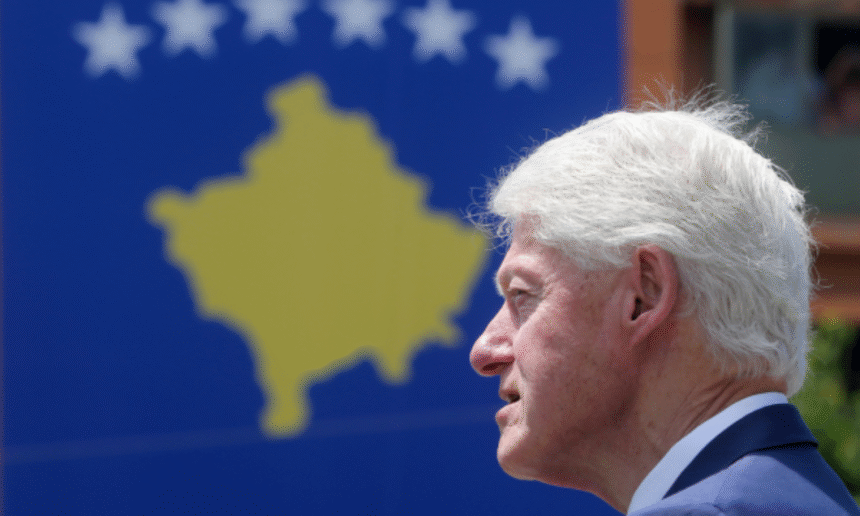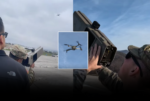Today, Kosovo marks the 26th anniversary of its liberation. On June 12, 1999, NATO-led peacekeeping forces entered Kosovo as Serbian troops withdrew, a day celebrated as Kosovo’s “Day of Freedom.”
On that pivotal day, then-U.S. President Bill Clinton addressed the American people, announcing the withdrawal of Serbian military and police forces from Kosovo. “I can report to the American people that we have achieved a victory for a safer world, for our democratic values, and for a stronger America,” Clinton stated. “Our pilots have returned to base. The air strikes have been suspended. Aggression against an innocent people has been curbed and is being rolled back.”
A Decade of Aggression Culminating in Atrocities
Clinton underscored that the intervention in Kosovo was a response to Slobodan Milošević’s “10-year campaign” to exploit ethnic and religious differences across the former Yugoslavia. He recounted the horrific consequences: “500 villages burned; men of all ages separated from their loved ones to be shot and buried in mass graves; women raped; children made to watch their parents die; an entire people forced to abandon, in a matter of hours, communities their families had spent generations building.” For these atrocities, Milošević and his top aides were indicted by the International War Crimes Tribunal.
NATO’s Unified Success and Future Challenges
The President outlined NATO’s three clear objectives for the intervention: to enable Kosovar people, victims of the worst atrocities in Europe since World War II, to return home safely with self-governance; to ensure Serbian forces responsible for atrocities leave Kosovo; and to establish an international security force, led by NATO, to protect all people in the troubled land—Serbs and Albanians alike. “These objectives will be achieved,” Clinton declared.
He expressed profound gratitude to the U.S. Armed Forces and their Allies, who “flew, risking their lives to strike their targets and avoid civilian casualties.” He also thanked the American people for their stance against “ethnic cleansing” and their generous aid to refugees.
Clinton highlighted NATO’s success as a “united alliance” of nineteen democracies, skillfully led by Secretary General Solana and General Clark. He acknowledged the crucial diplomatic efforts of Russia, stating, “we preserved our very important partnership with Russia, thanks to President Yeltsin, who opposed our military efforts, but supported the diplomacy to end the conflict on terms that met our conditions.” He expressed hope for Russian troops to join the peacekeeping force in Kosovo, mirroring their role in Bosnia.
Building a Lasting Peace in the Balkans
Looking ahead, Clinton outlined significant challenges: ensuring Serbian authorities fulfill their commitments (with a readiness to resume military action if they fail), securing the safe return of Kosovar refugees, clearing minefields, rebuilding homes, and addressing the fate of the missing. He also noted the need for the Kosovo Liberation Army to demilitarize, as agreed. Crucially, the peacekeeping force, comprising 50,000 troops from nearly 30 nations (with approximately 7,000 from the U.S.), would ensure Kosovo is a safe place for all its citizens.
The United Nations will establish a civil administration to prepare Kosovars for self-governance and policing, gradually transferring responsibility to local institutions. The third challenge involves creating a plan for “durable peace and stability in Kosovo and throughout the Balkans.” This requires the European Union and the United States to plan for a prosperous, shared future, acting as a “unifying magnet stronger than the pull of hatred and destruction.”
Clinton addressed the Serbian people directly, acknowledging their suffering under Milošević’s wars. He stated that their leaders could have kept Kosovo without expelling any Kosovar family or causing any civilian deaths, emphasizing that the 79 days of bombing were a direct result of Milošević’s determination to “eliminate the Kosovar Albanians from Kosovo, dead or alive.” He pledged no support for Serbia’s reconstruction as long as Milošević remained in power, but offered humanitarian aid and future assistance once Serbia’s government represented “tolerance and freedom, not repression and terror.”
Concluding his address, President Clinton underscored that the 20th century was ending with a “hopeful affirmation of human dignity and human rights for the 21st century,” thanks to the world’s determination to act against aggression. He urged Americans to be proud of their country and its service members: “Because in Kosovo we did the right thing; we did it in the right way; and we will finish the job.”







